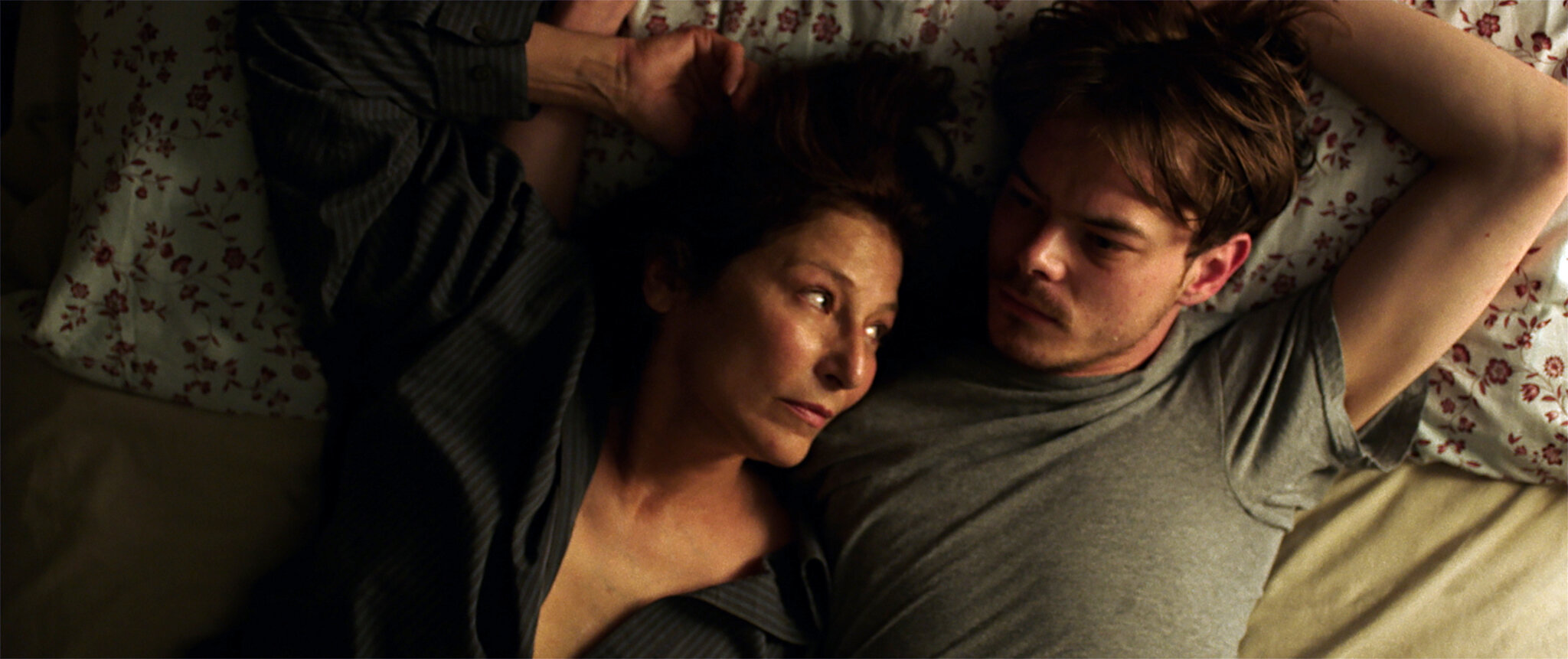No Future
by Matt Weiner
The title of No Future also serves as an emotional content warning for a film about heroin addiction, and it’s a warning to heed if you want this kind of narrative tempered with breezy redemption.
But it’s not without hope. Rather, directors Andrew Irvine and Mark Smoot avoid sentimentality and addiction cliches in equal measure, and what’s left is a lean, emotional gut punch delivered by the small cast all turning in top performances.
When an old friend dies of an overdose, Will (Charlie Heaton), himself in recovery from heroin addiction, begins a tumultuous affair with Claire (Catherine Keener), his dead friend’s mother.
The pair are drawn together by grief and guilt, a dynamic that quickly goes from sympathetic to parasitic as the two spurn the numerous more emotionally healthy therapeutic outlets available to process their loss.
Keener and Heaton are electric together, which is no small feat for characters that veer wildly between retreating alone into their own pain while showing a convincing attraction to each other. Keener in particular shines as a woman who goes from casual fatalism to incandescent rage as she comes to terms with losing her son Chris (Jefferson White).
The film flirts with thematic shortcuts, most notably in the form of No Future—a band that Will and Chris played in together. But the more Will and Claire wax philosophical about what brought them to this point in the present, it becomes clear that it’s less nihilistic than it sounds.
The film is populated almost entirely with people who don’t allow themselves the luxury of looking any farther ahead than their open wound of the day. It’s raw and bracing to watch it all unfold, but if nothing else the impact lingers well into the future.













